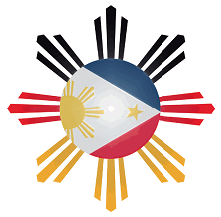Trauben- oder Weinbau auf den Philippinen. Hab da gelesen das es irgendwo Wein gibt der eigendlich kein Wein ist sondern ein Fruchtgetraenk
Hibiscus sabdariffa
Roselle, Karkadeh
Hibiscus sabdariffa
Roselle ist keine phl. Heilpflanze, mein Samen stammte aus Agypthen. In Agypten wird es als Tee verkauft.
Im Sudan und Oberaegypten gibt es grosse Plantagen. Weil heute Alkohol in diesen Laendern verboten ist trinkendie Leute dort das Zeug selbst.
In erster Linie ist es ein Erfrischungsgetraenk. In Hurgada trank man den sehr suessen Tee bei Magenverstimmungen heiss. Kalt als Londrink mit 4 CL Rum zum entspannen. Den Rum hatten wir im Fluggepaeck.
Als ich 2005 nach den Phil. ging hab ich mir 1 Kg mitgebracht. Da war jede Menge Samen drin. Spaeter hab ich gesehen das der Roselle auch am Central Highway in Cebu wachst.
Roselle ist einjaehrig, und man braucht schon viele Pflanzen. Im September kann man dann ernten.
Man schneidet die jungen Triebe in 10 cm lange Stuecke. Am besten braust man die Buesche einen Tag vorher ab. Man kocht dann die Abschnitte kpl in einem sehr grossen Topf (ca 12 Liter) mit ca 1 - 2 kg braunen
Zucker. Wenn der Sud richtig rot ist tut man ihn durchseien und kann ihn dann in Flaschen abfuellen.
Am besten schmeckt es natuelich frisch. Nach 3 Tagen hat man Rosellwein. Die Flaschen duerfen also nicht
geschlossen oder stark bewegt werden. In den Deckel der Flasche ein kleines Loch machen. Explosionsgefahr. Neue Colaflaschen sind ungeeignet, zu duenn. Den Deckel vorsichtig schliessen das Gas entweichen kann. Roselle ist leider nicht das ganze Jahr verfuegbar.
Roselle ist dann ein "Schaumwein". Bei unsachgemaessen oeffen geht der Inhalt verloren. Im Kuehlsschrank
lagern.
mfg Guenter
https://de.wikipedia.org/wiki/Roselle_(Pflanze)

